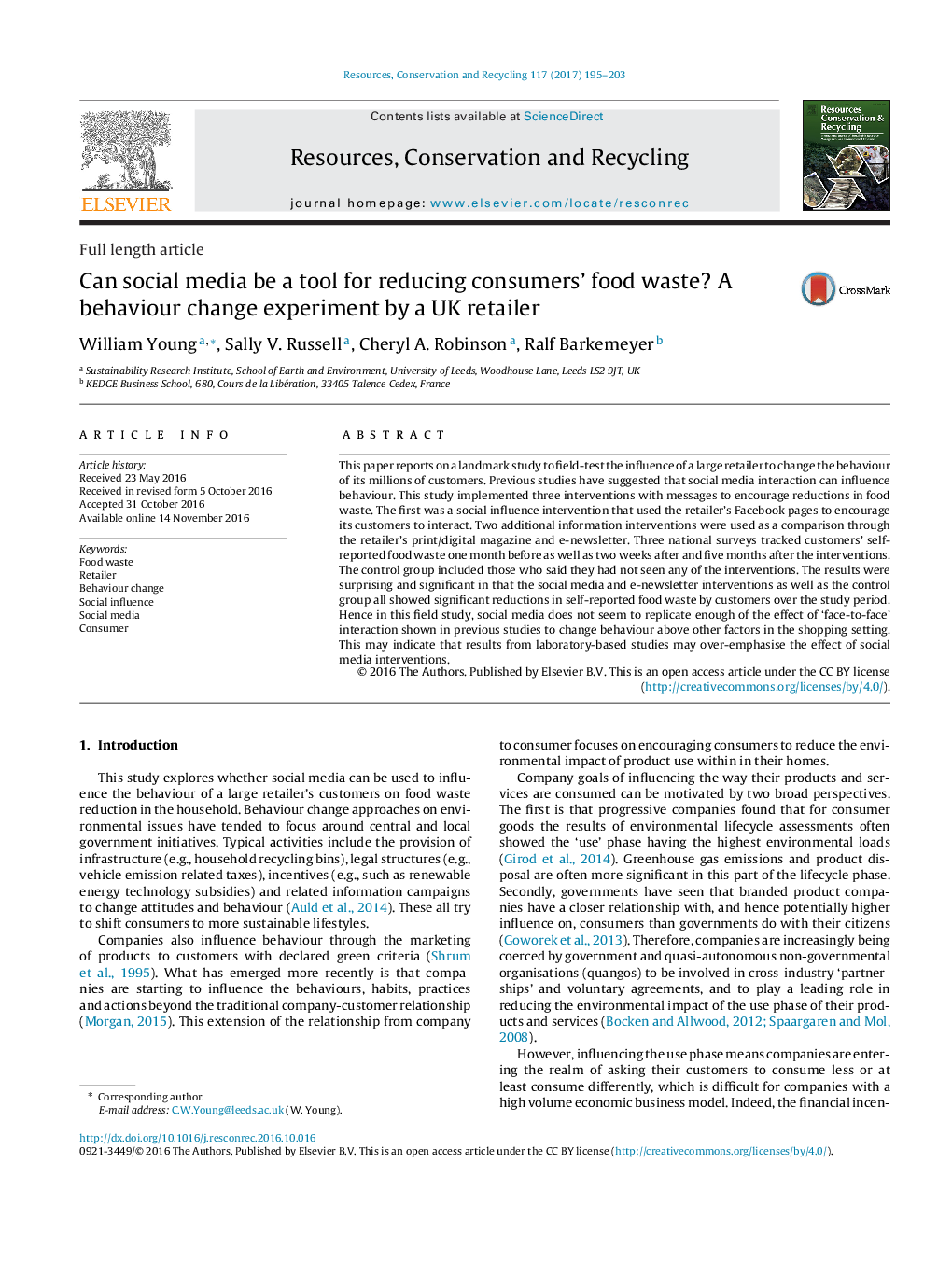| Article ID | Journal | Published Year | Pages | File Type |
|---|---|---|---|---|
| 5118900 | Resources, Conservation and Recycling | 2017 | 9 Pages |
â¢Social media significantly changed reported food waste behaviour.â¢E-newsletter significantly changed reported food waste behaviour.â¢Retailer's magazine was not significant in changing behaviour.â¢Control group reported a significant change in food waste behaviour.â¢Social media may not replicate 'face to face' of social influence.
This paper reports on a landmark study to field-test the influence of a large retailer to change the behaviour of its millions of customers. Previous studies have suggested that social media interaction can influence behaviour. This study implemented three interventions with messages to encourage reductions in food waste. The first was a social influence intervention that used the retailer's Facebook pages to encourage its customers to interact. Two additional information interventions were used as a comparison through the retailer's print/digital magazine and e-newsletter. Three national surveys tracked customers' self-reported food waste one month before as well as two weeks after and five months after the interventions. The control group included those who said they had not seen any of the interventions. The results were surprising and significant in that the social media and e-newsletter interventions as well as the control group all showed significant reductions in self-reported food waste by customers over the study period. Hence in this field study, social media does not seem to replicate enough of the effect of 'face-to-face' interaction shown in previous studies to change behaviour above other factors in the shopping setting. This may indicate that results from laboratory-based studies may over-emphasise the effect of social media interventions.
